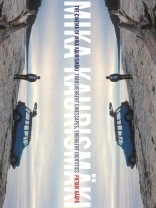Mika Kaurismäki’s films challenge many boundaries – national societies, genre formations, art/popular culture, fiction/documentary, humanity/nature and problematic distinctions between different zones of development. Synthesizing concepts from a range of thematic frameworks – e.g. auteurism, eco-philosophy, genre, cartography, cineaste networks, global reception, distribution and exhibition practices, and the potential of postnationalism – this book provides an interdisciplinary reading of Kaurismäki’s cinema. The notion of ‘transvergence’ – thinking in heterogeneous and polyphonal terms – emerges as an analytical method for exploring the power of these films. Through this method, the book encourages a rethinking of transnational cinema studies in relation to many oft-debated notions such as Finnish culture, European identity, cosmopolitanism and globalization.
A PDF version of this book is available for free in open access via the OAPEN Library platform: The Cinema of Mika Kaurismaki. It has been made available under a Creative Commons Attribution 4.0 International Public License and is part of Knowledge Unlatched.
Mục lục
Introduction: The (trans)national and the Global in Mika Kaurismäki’s Films
Chapter 1: The Aki/Mika Syndrome: Cosmopolitan Auteurism and the Search for Cinematic Stability
Chapter 2: Cross-genre: Transnational Genre Mutations
Chapter 3: Mapping Transnational Space at the Margins of the Global Metropolis: Representations of the City in Kaurismäki’s Films
Chapter 4: Post-road: Deconstructing the European Road Movie
Chapter 5: Auto-ethnography: Merging the Self and ‘Other’ in Brazilian Music Documentaries
Chapter 6: Post-nation: Kaurismäki’s Films in a Global Spectrum
Chapter 7: The Potential of Post-humanism: Kaurismäki and the Ecological Imagination
Chapter 8: The Polyphonality of Transvergence: The Reception of Kaurismäki’s Cinema
Conclusion: Beyond the Happy Ending
Giới thiệu về tác giả
Pietari Kääpä is associate professor in media and communications at the University of Warwick. His current research interests focus on environmental media studies, especially the use of environmental incentives in media production, as exemplified in his recent book, Environmental Management of the Media: Policy, Industry, Practice (Routledge, 2018). He has also published widely on Nordic genre film and television, including The Politics of Nordsploitation: History, Industry, Audiences (with Tommy Gustafsson, Bloomsbury, 2020)












